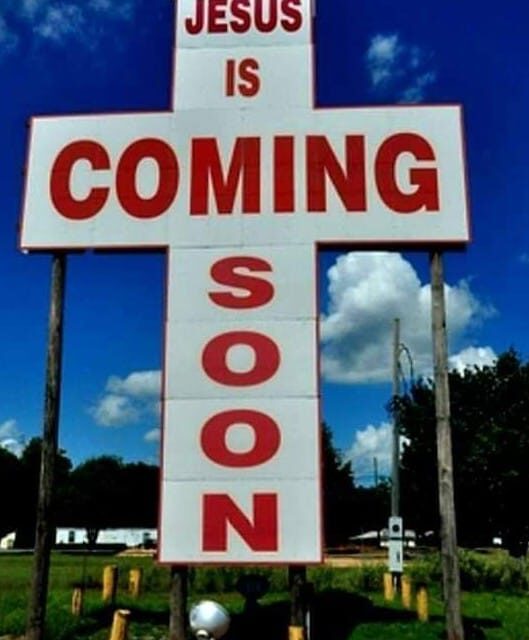The New Testament establishes the doctrine of the Second Coming. The parable of the Ten Virgins warns that all who believe in Jesus Christ must constantly examine their spiritual condition in the light of Christ’s coming at an unknown and expected time. We must remain true to our faith in Christ no matter what so that when the day and hour arrive, we will be ready for Jesus, and He will receive us when He returns (Matt 25: v10). The parable of the Ten virgins reminds us about the nature of the Second Coming, which is visible, imminent, and final.
The difference between the foolish and the wise virgin points to those in Christ or just in church (Jn 14:3). In this parable, Jesu Christ indicates that a large portion of the church will be unprepared at the time of His return (Lk 18:8; Matt 25:8-13). Let us notice that all the virgins (both faithful and unfaithful) were taken by surprise at the bridegroom’s coming (vv. 5-7). Our sense of urgency and preparation for the Second Coming of Christ fade and decline when we do not stay active and grow spiritually.
The parable of the Ten Virgins illustrates the difference between Christianity or leadership outside of the lamp (Christ) and those inside the lamp (Christ). In the Bible, oil represents the Holy Spirit. Another renewing highlight from the parable of the Ten virgins is about what it takes to be in Christ and ready for His Second Coming. The most significant part of being ready is being filled with the Holy Spirit. This requires more than just Sunday morning worship, church titles or degrees.
The ones in Christ took extra oil and were prepared and ready for His coming. The other, even though they were in the church and looked prepared, they were not ready for the bridegroom. This is how it will be when Jesus returns. Unfortunately, many will look prepared because they have lamps of good works and theologies which cannot save, but they will only be prepared if they have enough oil. The scripture says, “If anyone does not have the Spirit of Christ, they do not belong to Christ” (Rom 8:9). Beloved, be warned, you can be in church, preaching, singing, and even praying and sadly not belonging to Christ. This is the problem in the church today. When you are saved, the Holy Spirit reside in your heart. This is the defining marker of a believer or a leader. Leadership or Christianity becomes an empty lamp without the Holy Spirit or the oil, as mentioned in this parable of the Ten virgins.
Christianity and leadership ready for Christ’s Second Coming are eternally focused and Christ-oriented. The sins of the Pharisees, the Sadducees and Herodians point to the actors in the church but not in Christ; one, not living out in his or her daily life, the character he or she played on stage. Religious appearance and debate can become a mask, concealing our spiritual blindness, delusion, and the corruption within our hearts. Jesus’ parables warn us against acting as if we are devoted to God yet resisting everything Jesus was doing and teaching.
Are you in Christ and is Christ in you? (Col 1:27-28). You in Christ is where you are placed according to God’s purpose and power, and Christ in you is where He is placed according to God’s purpose and power. Your position is in Christ (Eph 2:6). When you are in Christ, Christ is yours, with the high calling, spiritual blessings, inheritance, and power that Christ possesses (Eph 1:18-21, 2 Cor. 5:21).
If all that is Christ’s belongs to you when you are in Him, then all that is yours belongs to Him when He is in you. You received Christ in you when you heard and trusted the gospel of Jesus Christ (Col.2:6). ‘You in Christ’ is about His body, and ‘Christ in you’ is about your body. What drives a man or woman is what is inside him or her. ‘You in Christ’ concerns what Christ does toward you; ‘Christ in you’ is what Christ performs in you and through you.
To be in Christ is to be spiritually awake, alert, and in love with the Lord’s Second Coming. In one of his classic Advent hymns, Charles Wesley (1707-88) pictures the Second Coming of Jesus Christ in clouds, with a “thousand thousand saints attending.”
1 Lo he comes in clouds descending,
Once for helpless sinner slain!
Thousand, thousand saints attending
Swell the triumph of his train:
Hallelujah, Hallelujah, Hallelujah,
All the Angels cry amen.
2 Ev’ry eye
shall now behold him,
Rob’d in dreadful majesty,
Those who set at nought and sold Him,
Pierc’d and nail’d gim to the tree.
Deeply wailing, deeply wailing, deeply wailing,
Shall the true Messiah see.
3 Ev’ry
island, sea, and mountain,
Heav’n and earth, shall flee away;
All who hate him, must confounded,
Hear the trump proclaim the day;
Come to judgment, come to judgment, come to judgment,
Come to judgment come away.
4 Now
redemption long expected,
See, in solemn pomp appear!
All his saints by man rejected,
Now shall meet him in the air!
Hallelujah, Hallelujah, Hallelujah,
See the day of God appear.
5 Answer
thine own bride and Spirit,
Hasten Lord, the gen’ral doom,
The new heav’n and earth t’ inherit,
Take thy pining exiles home,
All creation, all creation, all creation,
Travails! groans! and bids thee come.
5 Yea, amen
let all adore thee,
High on thine eternal throne!
Saviour, take the pow’r and glory;
Claim the kingdom for thine own.
O come quickly, O come quickly, O come quickly,
Hallelujah! come Lord, come.
Beloved, do not get carried away with the glorious and awe-inspiring images of the Second Coming conjured up in the Book of Revelation, sung about in many hymns and carols. Receive this divine promise in Christ Jesus alone today; tomorrow may be late.











Recent Comments